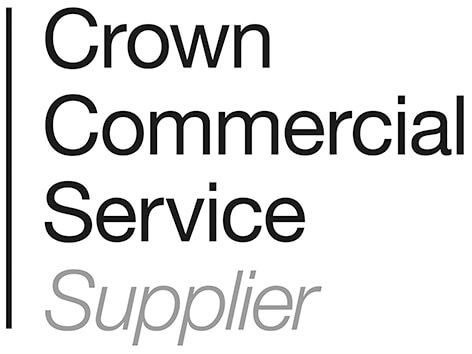Article
Last updated 21 November 2023
ERP cloud software has made great strides in the last few years, with the global market estimated to be worth around US$45 billion based on 2020 figures. There are a number of factors driving its growth, which we’ll examine in this guide. But first, let’s start with a brief explanation of what cloud-based ERP software is and who it’s intended for.
What is a cloud ERP system?
In simple terms, cloud-based ERP systems are enterprise resource planning solutions with software and data stored on a vendor’s cloud platform rather than on local servers. At the forefront of the Software as a Service (SaaS) movement, they are designed to eliminate the drawbacks associated with traditional ERP software and provide a more scalable, flexible and available solution to businesses of all sizes.
The benefits of cloud ERP systems
Solutions such as TechnologyOne ERP cloud software, with which we have a great deal of experience, offer businesses in Australia and across the globe a number of key benefits:
Initial costs
- As all the software and data is housed in the cloud, there’s no need to invest in new servers when adopting cloud ERP solutions. There are also no high licensing fees to pay for the new software and no need to buy additional security solutions to protect the new systems. Because the software will be maintained remotely, by the vendor, there’s also no need to invest in more training for your in-house IT team.
Speed of implementation
- As mentioned above, ERP in the cloud lessens the need to set up new hardware and to train your technical staff in how to install and maintain your new software. Solution design and configuration are usually accomplished more quickly. This means that a cloud ERP system can typically be implemented much faster than a legacy system running on your company servers. This is a crucial benefit as far as most enterprises are concerned, as legacy system implementations often take much longer than anticipated.
Availability
- TechnologyOne cloud-based ERP solutions and other leading cloud ERP solutions can be accessed over the Internet from any location in the world. For staff that move from one office to another on a regular basis or are often out in the field, this is a fantastic benefit. In today’s work-from-home environment, deployment via the Internet is crucial. The ability to access a corporate ERP system from a smartphone, as easily as it can be accessed from a desktop PC at corporate headquarters, is priceless for remote and mobile workers.
Scalability
- With software installed on local servers, your hardware needs to be upgraded as your business expands. With an online ERP system, on the other hand, no such upgrades are required. As demand grows, your cloud vendor will simply allocate more resources to your system, ensuring there are no service interruptions or performance issues caused by a rapidly expanding workforce. If your business subsequently contracts, resources will be adjusted accordingly, which will also ensure that you never pay for system capabilities you don’t really need.
Maintenance and upgrades
- With a cloud-based ERP solution, all software and hardware maintenance/upgrade work is handled by the vendor’s IT support team. There is no need for your own team to spend any time looking after your ERP solution and no inconvenient downtime due to ‘essential maintenance’.
Integrated backup solutions
- All leading cloud-based ERP systems include enterprise-grade disaster recovery, with data redundancy. In the event a critical piece of hardware should fail, your system will be back up and running without delay. With systems that run on local servers, critical hardware failure can often lead to irrevocable data loss.
Security
- Again, leading cloud-based ERP systems include enterprise-grade security, protecting their customers from unauthorised system access and data leakage or loss. The cloud-based ERP system business model is based on providing secure service. Security in the cloud is applied to all customers simultaneously and without interruption.
Consistent design and user interface
- With the same user experience across desktop PCs, tablets and smartphones, ERP cloud software is much easier to adopt. There is no need for employees to be trained in the use of diverse software applications because they are presented with the same user interface no matter where they access the system from.
Given the numerous benefits that cloud ERP solutions have to offer, it’s not surprising that so many companies globally have already adopted them. What is surprising is the number of companies that struggle to realise these benefits due to a lack of in-house expertise.
Lánluas will help you to unlock the full potential of your TechnologyOne ERP cloud software and take full advantage of all the features and functionality it brings to your organisation.
Contact us if you would like to discuss your online ERP needs and find out more about what we do.
At Lánluas, we specialise in helping businesses to take full advantage of the opportunities that this software presents.
To transform your business, contact us today. We’ve helped many companies benefit from cloud ERP solutions and would love to do the same for your organisation.
Sign up to our newsletter for the latest news and insights.
Plus, get exclusive access to our VIP content.


